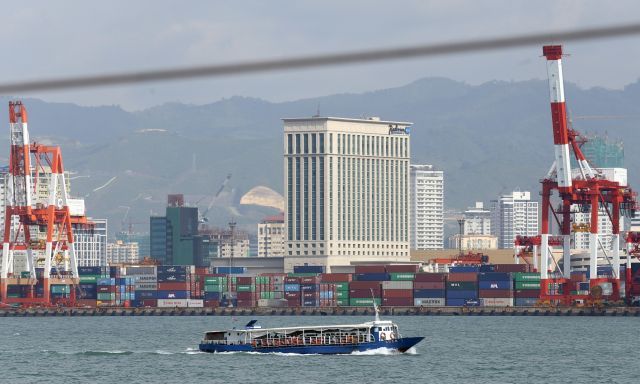
Logistics firms help deliver cargo to destinations around the world. CDN FILE PHOTO
CEBU CITY, Philippines — Despite the challenges posed by the coronavirus disease 2019 (COVID-19) pandemic on all asset classes in the real estate sector, top professional services firm Jones Lang LaSalle (JLL) reports resiliency for the country’s logistics sector.
JLL said the opportunities for the logistics sector stemmed from the growing cold storage demand and the growing e-commerce landscape in the country.
However, realizing this positive outlook will require significant innovations in the industry.
JLL said that accelerated adaptation to e-commerce platforms, strengthening supply chain risk management, and expansion of last-mile fleet— or the movement of goods from logistics facility to final destination—should be addressed by the market to allow it to grow by 56 percent in the next five years and a triple-digit increase of 125 percent in the next 10 years.
“The outlook requires that a sustained improvement in e-commerce platform should take place along with the growing trade balance with other countries and favorable manufacturing sector,” Janlo de los Reyes, JLL Philippines head of research and consultancy, said.
De los Reyes said JLL believed that space developers and operators should adapt with the evolving demand brought by technology and build modern facilities to meet the projections.
In JLL’s latest research, “The Evolution of Philippine Logistics: A Case for Better Quality Logistics,” the firm found that the “demand for logistics space in the Philippines has been generally positive, but addressing the increasing demand for better quality facilities from new entrants in the market could translate to approximately 160,000 square meters per annum of new demand in the next 10 years.“
The research, JLL said, presented key macro and real estate trends that suggested the potential of the sector. It also tackled the prospects for new quality grade space in the real estate market.
“While there is a positive demand for logistics space in the country as reflected in the uptick in transaction activity in recent years, there is an increasing demand for better quality facilities, mostly from e-commerce firms and third-party logistics (3PLs) requiring high-specification warehouses that utilize technology and digital tools as part of their operations,” JLL Philippines’ Director for Industrial and Logistics Tom Over said.
“The logistics sector is currently seen as the evolving asset class in the Philippines, with a number of established developers looking to increase their exposure in the sector. Focus on efficiency, specification, sustainability, and amenities puts the market at a turning point for growth and improvement in quality,” he added.
In the report, the firm identified five key pillars in the real estate sector that needs to be addressed in order to meet the demand for better logistics facilities in the country. These are efficiency, consolidation, decentralization, workforce, and sustainability.
With most of the total cost in logistics dedicated on its transport element, JLL said increasing the efficiency of operations across the real estate could reduce the waiting times for loading/unloading.
Consolidating operation in larger warehouse spaces in one site rather than having multiple smaller facilities that are spread out would further optimize cost.
With rising land values and rental values within Metro Manila, JLL added that key logistics, fast-moving consumer goods and e-commerce players are seeking opportunities outside the Capital.
“Large distribution centers employ a supply chain team to organize and manage the operations. Therefore, modern facilities require fully fitted and integrated two-storey offices. Operators need to create comfortable workplaces to attract talent,” the JLL report said as it discussed innovations on workforces./dbs